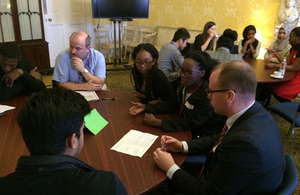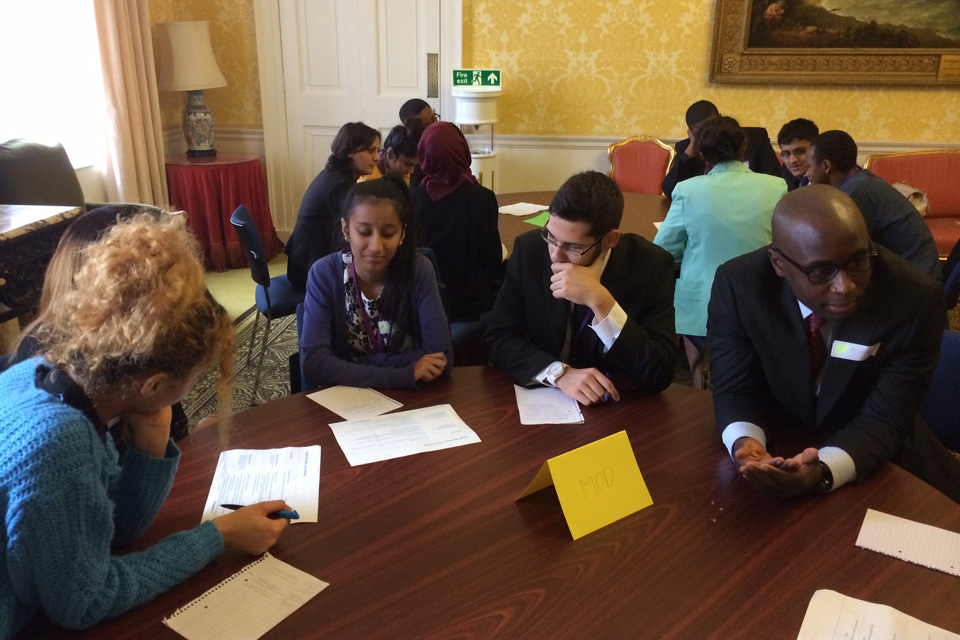Parliament Week Spending Challenge: students' perspective
Four students share their experience of the Spending Challenge, part of Parliament Week at the Cabinet Office.

Loshell Coke and Abigail Jarrett participating in the Spending Challenge.
Troy Da Silva, Loshell Coke, Loretta Yussuff and Abigail Jarrett participated in the Spending Challenge, one of the events for Parliament Week at the Cabinet Office. Afterwards they shared their thoughts on the experience:
On Monday, our Politics class was invited to the Cabinet Office to learn more about how government departments set their annual budgets.
We gathered with students from other schools at Admiralty House. The surroundings — the paintings, statues and eighteenth century furniture — really gave us a sense of the history and significance of the Cabinet Office and helped us get into our roles as ministers for the day. It was also helpful in another way. As we were about to discover, we were about to go into battle!
We met several influential figures in the civil service who have played key roles in departments such as the Ministry of Defence and the Department of Health, one of whom was Francis Maude, the Minister for the Cabinet Office who told us that running government should be “like running a business” as departments should not be encouraged to spend money unless it offers real value to the taxpayer. With that in mind, we approached the main task of the day.
We had to negotiate our department’s budget with a team of students standing in for the Treasury. We had a group of real civil servants on hand to make sure things ran smoothly. Our team took the role of the Department of Health. We had to come up with a budget to help improve the NHS. During this time we were able to initially negotiate different saving methods with each other and decide which ones we want to take to the ministers and which ones are going to be decoys. We adopted a strategy of coming into the first session with an introductory speech to explain how our department was the most important in government.
We then proposed different spending plans and rank ordered our proposals to save money, explaining the importance of each proposal. We came to compromise on which ones will best benefit both the government and the people.
Our negotiation was successful as we had a baseline budget of £85 billion, which is what we hoped to achieve due to our negotiation skills. We were able to avoid compromising on any saving and spending methods while being able to achieve the £85 billion we needed in order to run a successful department without cutting into the 1.7 million jobs in the NHS.
We learned a lot. We learned how government departments tackle budgets through strict and heated negotiations and how this benefits the country as a whole. We learned different political parties’ views on how to manage the budget for different government departments such as Health and Education. It was also evident how important the civil service is in supporting ministers; how their advice provides clarity between proposed policies. We also gathered how much departments such as the health service influence our daily lives. We had no idea, for example, that the NHS treats an average of 3 million patients a week.
The overall experience made us more likely to vote when we turn 18 as it gave us an insight into party policies and how they impact on voting behaviour on certain policies such as those fronted by the UK’s Department of Health.

Troy Da Silva and Loretta Yussuff participate in the Spending Challenge.